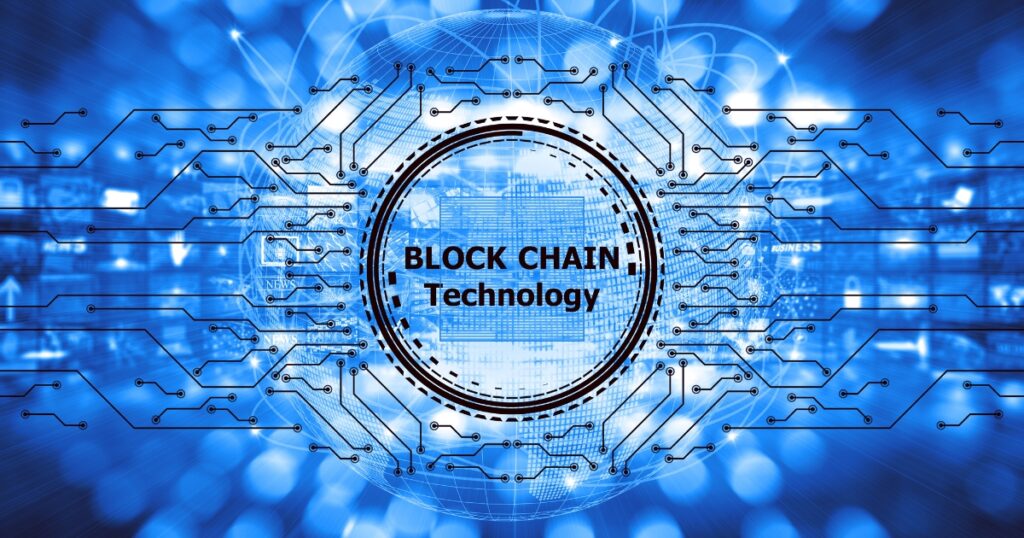Supply networks are more complicated than ever in the modern, worldwide economy. Every day, millions of transactions take place at various supply chain stages, from manufacturers to retailers. However, problems like fraud, inefficiency, and a lack of transparency have hampered traditional supply chains. Blockchain, a decentralized technology, provides a revolutionary answer to these issues.
Recognizing Supply Chain and Blockchain
Let’s first examine the fundamental ideas of supply chain management and blockchain before entering into its applications.
A distributed database technology called blockchain makes it possible to store data in an unchangeable, transparent, and safe way. Blocks are used to store each transaction or piece of data, and these blocks connect together.
Compared to that, supply chains include the whole network that is involved in the production, handling, and distribution of supplies or services. By providing real-time, clear, and accurate records of every activity in the supply chain from the first step of production to the last delivery blockchain technology offers a solution.
Blockchain’s advantages for supply chain transparency
Blockchain for supply chain transparency enhances traceability, reduces fraud, and ensures real-time, immutable data sharing among all stakeholders, leading to greater trust and efficiency
1. Improved Transparency and Tracking
The capacity of blockchain to offer complete transparency and tracking in the supply chain is one of its most attractive features. A single, changeable record is accessible to all parties connected with blockchain, including producers, suppliers, distributors, and retailers. This means all transactions, product movements, and status updates are documented on an open platform.
2. Cost Reduction
Blockchain technology can result in significant cost savings by reducing the need for brokers, paperwork, and verification procedures. Because all the required data is easily accessible and permanent, blockchain’s accessibility additionally reduces the need for costly audits and investigations.
Blockchain can also reduce the chance of expensive errors, fraud, and conflicts, preventing businesses from paying extra costs as a result of inefficient supply chains.
3. Faster and More Efficient Transactions
Because traditional supply chain transactions require agents, documentation, and verification procedures, they may take days or even weeks to complete. Blockchain uses smart contracts to automate many manual operations and removes the need for mediators. For example, a blockchain-powered smart contract can be used to start the payment when a shipment arrives at a specific place. Blockchain for supply chain transparency is revolutionizing sectors by boosting operational effectiveness, decreasing fraud, and enhancing trust.
4. Decreased Fraud and Fake Products
Fraud and fake products are serious issues in a variety of industries, such as food, luxury goods, and pharmaceuticals. Blockchain technology allows for the allocation of a unique digital identity to every product, which is then stored on the blockchain. The potential of fraud would be decreased because a product would be immediately identifiable if it was changed with or was a fake.
Examples of Blockchain in the Supply Chain in the Real World
Blockchain technology has already started to be used by a number of significant businesses to improve their supply chain operations.
- IBM and Walmart:
IBM and Walmart joined up to utilize blockchain technology to enhance food product tracking. Walmart is quickly able to identify the origin of products like leafy greens thanks to IBM’s Food Trust Network.
- Maersk and IBM:
The multinational shipping powerhouse Maersk and IBM have worked together to create the blockchain-based Trade Lens technology. This software reduces paperwork and promotes procedures by offering real-time tracking of shipping containers and streamlining document sharing throughout the supply chain.
- De Beers:
The diamond manufacturer De Beers tracks the movement of diamonds from the mine to the retail market using blockchain technology. This reduces the possibility of unstable diamonds entering the market while guaranteeing that buyers are buying diamonds from ethical sources.
The Future of Blockchain in Supply Chain
Blockchain technology will only become more significant in supply chains as it develops more. As businesses search for methods to increase transparency, cut expenses, and fight fraud, the technology is probably going to be adopted faster.
Final Thoughts
Blockchain technology has immense potential to solve some of the most important issues that global supply networks experience. Blockchain is transforming how companies handle their supply chain operations with improved traceability, decreased fraud, and increased efficiency. The future of supply chain management appears to be more promising, transparent, and effective than ever before as more businesses use this technology.

